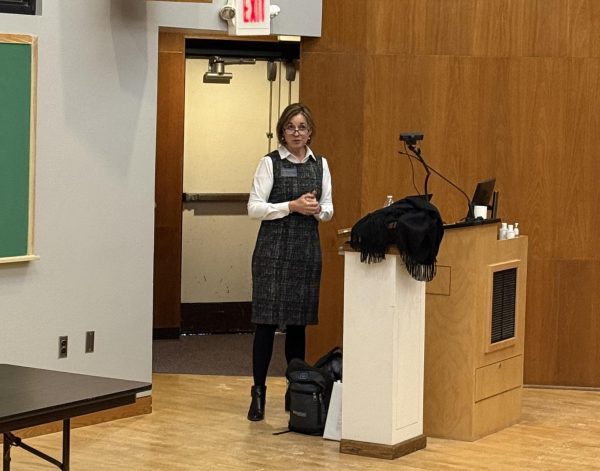Survey says students doubt ASG influence
A recent survey conducted by The Campus found that 46 percent of the students polled feel that Allegheny Student Government does not have an influence on campus while another 24 percent are unsure.
The Campus conducted an online poll asking students if they feel represented on campus and if they believe ASG has influence, if students know who their student representatives are and if they feel their interests are represented on ASG. A total of 139 students responded to the online survey.
Currently there are 53 members that make up ASG, this includes 37 senators and 16 cabinet members; all are elected positions.
In the wake of restructuring and discussions about the legitimacy of ASG’s role on this campus, the survey’s results justify the reason for the ASG’s discussions over its own legitimacy. Out of 139 responses, 60 percent said they did know their class representative, while 34 percent believe their views are not represented and another 49 percent are unsure.
Brogan McGowan, ’16, the current chief of staff on ASG, has been a part of student government since his freshman year. According to McGowan, emails from direct representation only started last year and in his first year as the freshmen class president direct representation was not a part of the regular conversation. Though ASG needs to work on communicating with constituents and transparency, McGowan believes ASG has made steps in the right direction.
“I think that ASG making significant strides in the direction of being more focused on what that direct representation might mean, how it would look, and what the responsibilities it puts on the senators,” McGowan said. “Because of that, it’s becoming more relevant to the conversation.”
To begin to test ASG’s influence on campus, a recent ad-hoc committee was formed to discuss a resolution that would require ASG to have a two-thirds majority vote in favor of security cameras placed on campus. According to senator Lee Scandinaro, ’15, this resolution was like a litmus test to see if they had any influence within the administration.
“I think that ASG right now is struggling with that question itself.” McGowan said. “I think that correlates heavily with how the student body might be perceiving the organization. But, we’re working to figure out how to become more efficient of an organization so that we do have a purpose and that we do have influence over the decisions that are made for the campus that impact students and the student body.”
On Oct. 21, Dean of Students Joe DiChristina talked about the resolution and came to the conclusion that instead of having a formal vote, the administration will have a formal conversation with ASG, making it unclear if the resolution had an effect.
Maria Liuzzo, ’16, said was surprised to hear that students feel their views are not represented through the senators and that this news is problematic.
“It’s good to have a voice and a direct voice is definitely important especially because we can’t all say what we need,” Liuzzo said. “Having that one representative will definitely help us get what we want in terms of certain issues. Representation is always important.”
Andrew Sestina, ’16, felt that he falls under the large percentage of students who are unsure if their views are represented in ASG.
“I don’t even know who my direct representative would be, I don’t know who I would go to,” Sestina said. “I have a friend on ASG that I know I could contact but that’s about it.”
Though ASG’s true influence is still unknown, Jess Mrjdenovich, ’16, believes strongly in the role ASG plays on campus.
“I think it’s important because obviously it’s the wants and needs of the students,” Mrjdenovich said. “We’re paying for our education, if we have problems on the campus I think the students should definitely have a voice.”
For Sestina, ASG’s influence may be more in appearance than anything else.
“My immediate reaction is that they really make it appear that they have an influence on campus,” Sestina said. “There’s always the stations in the campus center and they always send out those emails, but whether or not people partake in or believe in what they do, that’s a different story.”
Sestina added that student government’s influence on campus is imperative because it represents student voice on campus.
“It’s our student government,” Sestina said. “They’re supposed to be the spokespeople for us, they’re supposed to be our voice when as an individual I can’t come out and speak. If they don’t make a difference then how am I supposed to feel that I can make a difference on campus?”





